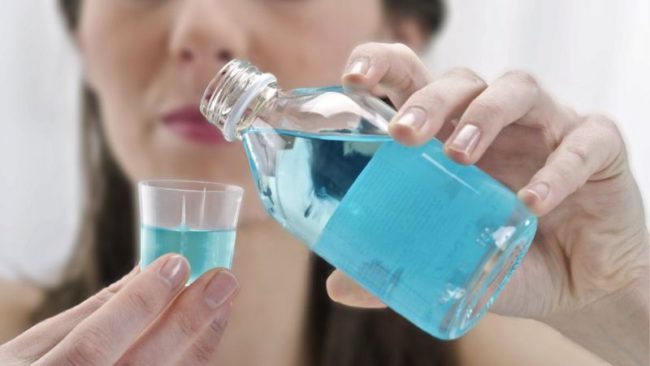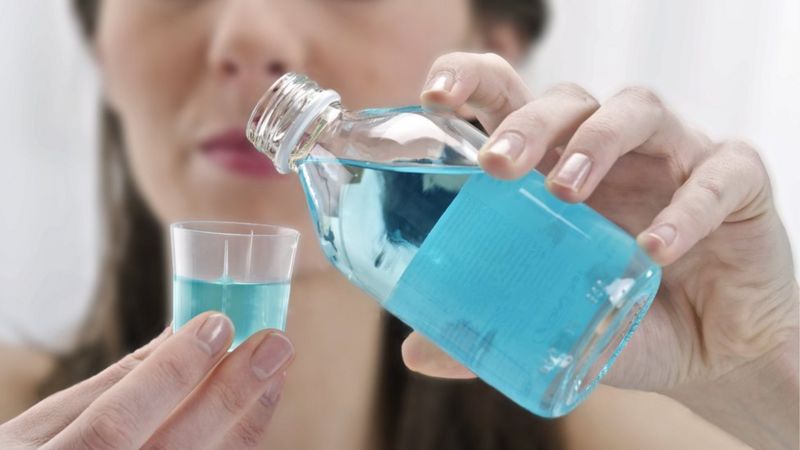
The media has been churning out stories about COVID-19 and Mouthwash like this …
- SKY: COVID-19: Mouthwash can kill coronavirus within 30 seconds, study finds
- BBC: Covid: Mouthwash ‘can kill virus in lab in 30 seconds’
Given the current state of things due to COVID-19 then it is rather inevitable that some will proceed to buy into the idea that a regular mouthwash will in some way protect them against COVID-19, or if they already have symptoms, will in some way help to cure them.
Prediction: Next time I go to the store, the mouthwash shelf will probably be empty.
Buried in the small print of such stories you will of course find statements such as the following …
While the research suggests use of mouthwash may help kill the virus in saliva, there is no evidence it could be used as a treatment for coronavirus, as it will not reach the the respiratory tract or the lungs.
Let’s dig in a bit and see what we actually have here.
Study: The Virucidal Efficacy of Oral Rinse Components Against SARS-CoV-2 In Vitro
There are a couple of rather important points here.
- The study paper is available on a preprint server called BioRxiv
Key Point-1: It has not (yet) been peer-reviewed. Without that independent scrutiny, any study should be handled with considerable caution. I get why they have issued it early. Given the dire state of things due to COVID-19, getting any and all information out quickly is desirable. That however still does not in any way nullify the caution.
We have been here before. Not too long ago on March 17, 2020, French microbiologist Didier Raoult announced via video that hydroxychloroquine had worked as a treatment for COVID-19. He was wrong, it does not work, his study was flawed. It took other independent studies until June to work that out. Because Trump hyped it a few days later on Mar 19, a great deal is irresponsibility ensued until finally it was established that is did not work.
key Point-2: There is one other rather important observation, namely the words “In Vitro“. That basically means that what they did was a test conducted in a glass dish, not in a biological organism.
What exactly have they announced?
Specifically this …
During a 30 second exposure, two rinses containing cetylpyridinium chloride and a third with ethanol/ethyl lauroyl arginate eliminated live virus
What they have not done is any of this …
- They have not established that the use of mouthwash prevents COVID-19
- They have not established that the use of mouthwash can be part of a COVID-19 treatment and helps
They have clearly stated that further studies might help determine if the use of mouthwash helps to prevent transmission. Note: That is a question that they are now asking, it is not a statement that it will work.
If indeed it does help to neutralise the virus in your mouth, then it may indeed be part of the toolset used by dentists to help protect them from you, but only in conjunction with lots of PPE as well.
What do the makers of Mouthwash say?
Surf on over the the Listerine website and there you find that they are very very clear….
LISTERINE® is a daily mouthwash which has been proven to kill 99.9% of germs* that cause bad breath, plaque and gingivitis. LISTERINE® mouth rinse has not been tested against the coronavirus and is not intended to prevent or treat COVID-19. Consumers should follow the preventive measures issued by the public health authorities including washing hands frequently, maintaining social distance and avoid touching your eyes, nose and mouth.
They even have a caution for the above. Note that * against their claim that it kills 99.9% of germs. They quality that to explain “Lab test only. Germ kill % in the mouth can be lower“.
One small side note: Killing all the bacteria in your mouth might not be such a good idea. If you continuously use it, then it can disrupt your microbiome and impede the normal functioning of your body. That however is a topic for another day. To be clear, I’m not suggesting don’t use it, but rather that using it each and every day, twice a day, might not be beneficial in the long term.
